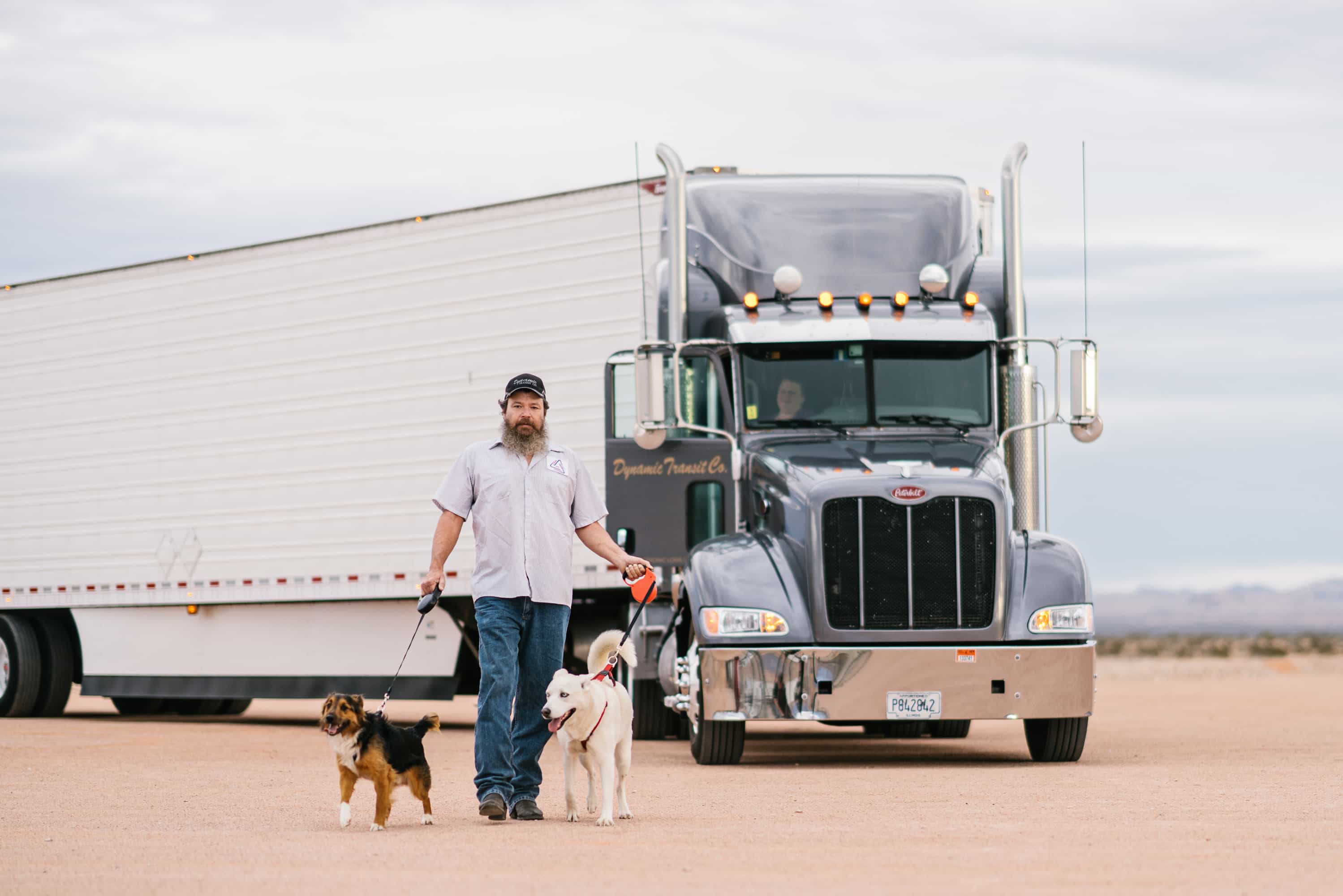What You Need to Know About Trucking Pets
Trucking with pets always brings rewards and new challenges for each season. Last fall, we talked with a couple of Dynamic drivers about how they care for their pets while on the road in the winter. With the temperatures already warm and continuing to rise, let’s talk about the best ways to look out for your furry sidekicks in summer.
Keep pets you trucking pet hydrated.
Hydration is critical for pets in the summer. Bumps and potholes on the roads can make it difficult to always have a fresh bowl of water available during the day. Do your best to find a way to secure one or try:
- – Freezing broth to place in the water bowl for a less mess frozen treat
- – Buying cups of ice when you make a stop and putting them in a cup holder if the dog can reach;
- – Switching to wet food for increased water intake during the summer
Protect their paws.
Burned paws are one of the most common injuries vets treat during the summer months. Park as close to the grass as you can for your pup. If you can’t park close enough, you will need to carry your pet across the asphalt. There are boots you can purchase to protect paws, but many pets do not like them (just a heads up before you spend the money on them).
If paw burns do occur, please visit a vet if you feel they are severe. If they appear to be mild, over the counter salves can be purchased or coconut oil can be applied to keep the burn moist as it heals.
Apply for flea medicine.
The last place you want to have to wrestle fleas is in your bunk. Once they set in, fleas will quickly be in your bedding and seat upholstery, making you and your pet miserable. Whichever flea medication you prefer, do not leave home without it.
Visit the barber.
Whether your trucking buddy is a dog or a cat, if they have long hair or a thick coat, a trim will probably go a long way in keeping them cool.
If your trucking pet seems overheated:
Even when we do our best to keep the air running while we’re out of the truck or provide shade when we’re stopped, pets can overheat quickly in the summer due to their low body temperatures. If your pet is panting hard, sounds raspy, or isn’t panting when they should, they may be overheated.
- – Make your pet comfortable by offering shade and a fan.
- – Provide fresh, cool water for them to drink. Sometimes they need some put on their mouths first before they’ll help themselves.
- – Spray them down with cool water if possible.
- – Apply cool packs to the paws and groin area. Frozen bottles of water are a good option for them to lay on.
- – Call a vet if conditions do not improve.

